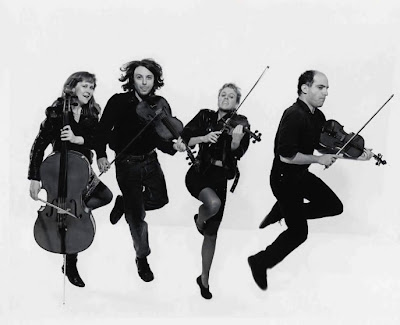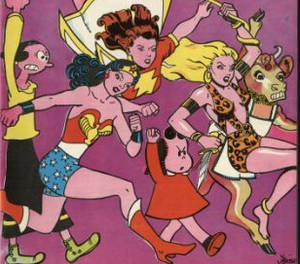The title of today’s post is the first line in John Ashbery’s poem, “Quick Question.”
Quick Question is also the title of the book of poetry in which it is found. It reminds me of how I think about music performance and universities. I believe it might be changing slightly, mostly in the students. But the odd way in which musicians (professors) focus on their careers, the parameters of their daily lives and not music itself echoes the idea that a museum is more sterile than what spawned the marvelous creations it houses.

Another quote pops to mind from this morning’s reading:
“I could beginne againe to court and praise,
And in that pleasure lengthen the short dayes
Of my lifes lease; like Painters that do take
Delight, not in made worke, but whiles they make;”
John Donne, “Elegie: The Expostulation”

Music and probably all art is about the doing of it, the action of it. Scaffolds of pretentious clutter that hide the beauty and fun notwithstanding, for me, music is a door to meaning which opens up a meaningful life. It is a holy ritual.

“Ritual, of course, is action; it is something that people do. Its meaning lies not in the created objects that are worn, or exhibited, or eaten, or performed, or otherwise used, but in the acts of creating, wearing, exhibiing, eating, performing, and using.” Christopher Small, Musicking p. 107 or location 2363 Kindle book.

Christopher Small understands this.
“Properly understood, then, all art is performance art, which is to say that it is first and foremost activity.” Christopher Small, Musicking p. 108 or location 2392 Kindle book.
He also tends to think of musical performances in terms of social relationships. This is especially significant when thinking about music that is improvised by individuals or groups.

As I think about this I wonder about the significance of the shifting ways humans are experiencing music via recordings. It boggles my little pea brain. I await my books by and about Glenn Gould to continue thinking about this.

In the meantime, I want to mention that I have had many nice compliments from learned musicians lately. I was accosted at New Holland Brewery by a parishioner who is a musician. He thanked me for playing the Widor Toccata. I thanked him for listening to it. There’s a social relationship, eh?
A woman leaned across the table and said that she wanted to make sure that she took this opportunity to say how well I had played the Widor on Easter Sunday morning. She also is a degreed musician.

Since most local music profs keep their distance from me, it is nice to have some non-professors who are also trained musicians notice my work.

I write about it here to balance my usual bitching and self pity.
*****
A Brief History of Applause, the ‘Big Data’ of the Ancient World – Megan Garber – The Atlantic
Just what it says. Emphasis on ancient Rome.
*****
After God: What can atheists learn from believers?
bookmarked to read as are the rest of the links below
*****
madness and civilization – bookforum.com / current issue
Cabinet is a magazine I have never heard of. This is a description of it and a recent mock trial of it.
*****
The bitter fool by David Yezzi – The New Criterion
Satire replacing the absence of poetic impulse?
*****
The lips, the teeth, the tip of the tongue by Denis Donoghue – The New Criterion
Another poetry link. I had to bookmark it because it echoes a diction exercise I have long used with children’s choirs: “Lips, teeth, tip of the tongue; lips teeth tip of the tongue; lipsteethtipofthetongue.”
*****



I’ve always liked Glenn Gould. For a variety of reasons. You reminded me that I wanted to watch that movie about him. You’ll have to tell me what you think of the books you get. I was really interested in finding some of his radio broadcasts he did about Canada – he was supposed to have used sound in a very musical way in them. Anyway, I also wanted to say that if music making is a kind of gift (as that book says), it’s at least helpful to know that someone received it. Making music in a vacum isn’t gratifying, even for people who make music because of the joy of it (which I think is what both of us do) Or rather, it’s ok to make music in your living room for yourself. But if you play for a roomfull of people, and no one feedsback anything, it’s like playing for a black hole – all that stuff goes out, gets sucked up, and nothing comes back. So I don’t think it’s an ego thing to need to get something back, at least now and then. fwiw… And I still maintain, all those music profs wouldn’t goto Grace if they thought the music was bad. If they don’t ever engage you about it, it’s them not you.
Rhonda you see through my thinly disguised egotism very nicely. Heh. I especially appreciate your comments since I know the Widor Toccata is one you might have some mixed feelings about (as do I) due to its ubiquitousness. This week in the midst of my Easter weariness I began fiddling with the Final from Vierne’s 3rd. I was surprised at the reaction to the tired old Widor. If people enjoy that so much maybe I should give the genre of organ symphony another look. I recommend the Glenn Gould movie. I quite enjoyed it and would be interested in your (and Mark’s if he watches it) reaction. There is quite a bit of Gould (talking as well as playing) on YouTube.
probably, the reason they love it is why we’re tired of it. hadn’t thought of this too much, but i suppose it’s a reason to pull it out again. Actually, Brian wants to do the organ/choir version next month. I’m sure people will go CRAZY about that (said only half cynically…). I shouldn’t be so high-brow. I was just writing to John H that I wanted to know where in this country I could play the Ligeti Etudes. Did you see Volumina at the music sale? I snatched it up last night eagerly. Mint condition!!!
I didn’t see the Volumina (and in fact don’t know it) but would have snatched it as well since I admire Ligeti and do own some piano scores by him. Do you play the piano Etudes? Wow. Those are hard. I have book one of them. Who is John H? You can tell me in an email if you’d rather put his last name online. The sort of arrangement you are talking about (choir and organ transcription of a warhorse) makes me shudder even though I perform the Widor Toccata with a clear conscious on a bad organ. It reminds me of the main versions of Barber’s Adagio I have heard. I have even had one young parishioner send me a link on Spotify to a version of the Barber. He loved it of course. In my mind, this goes over a line. But what do I know?